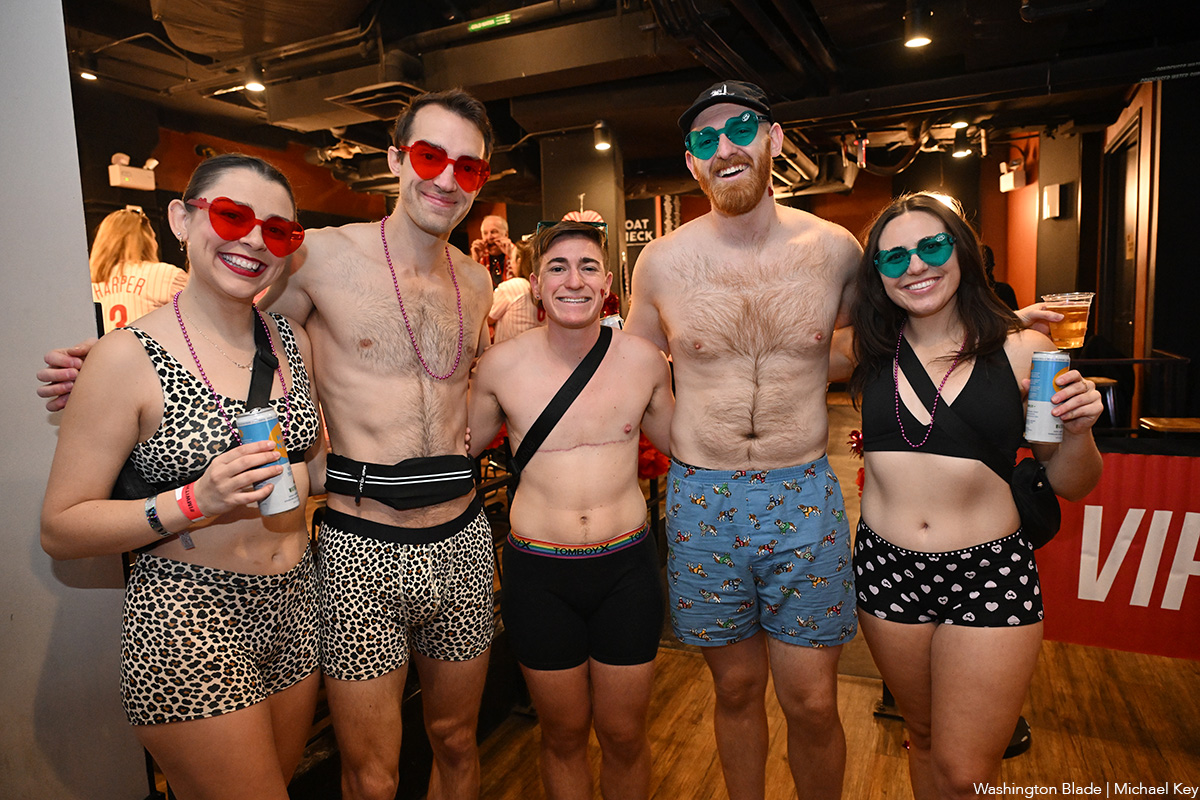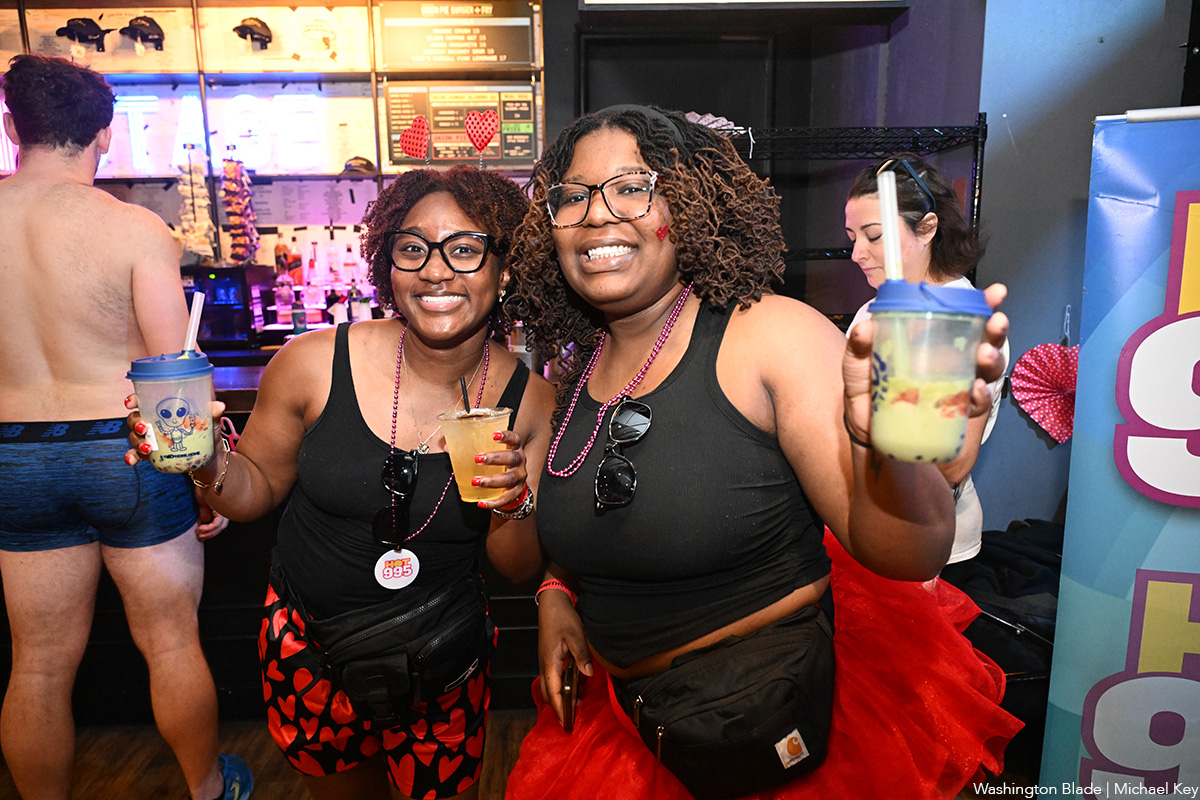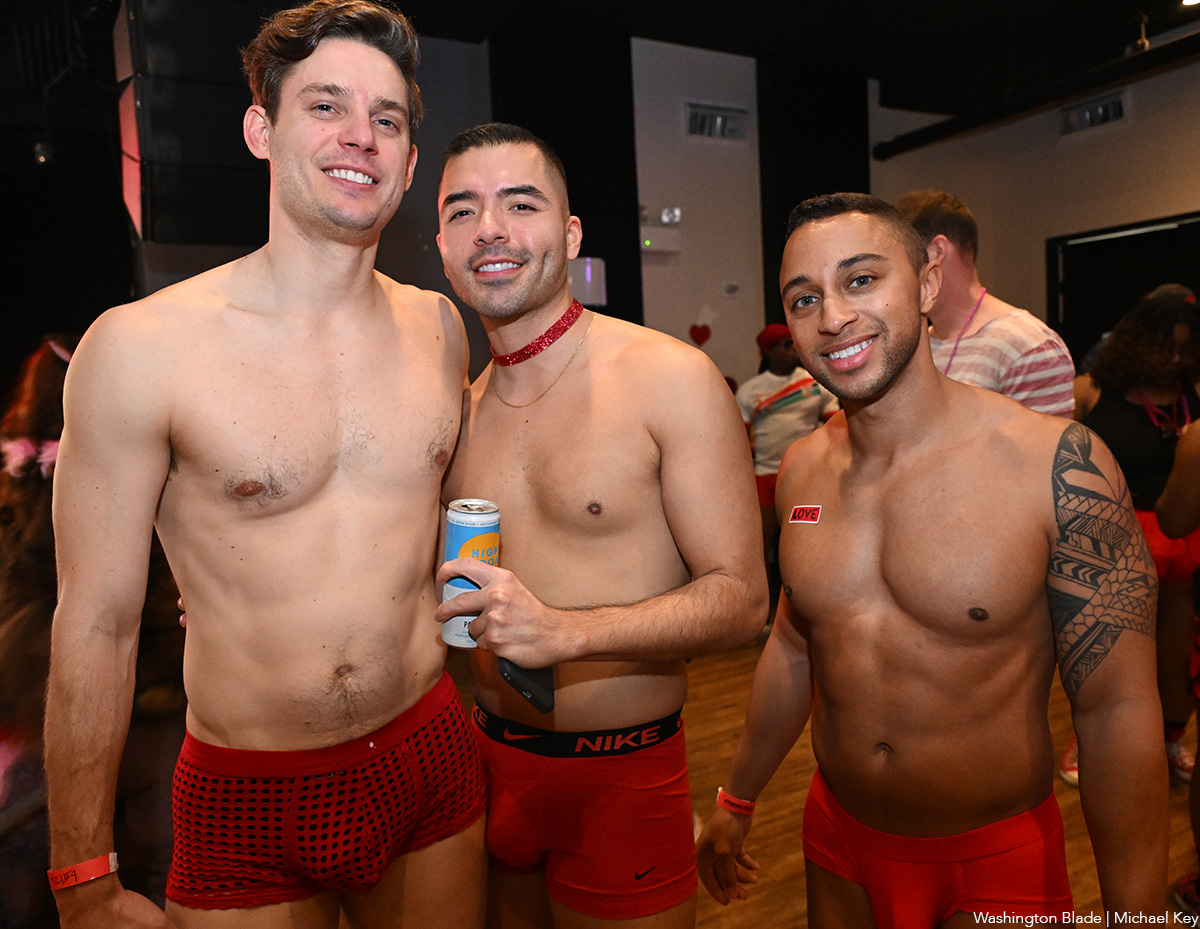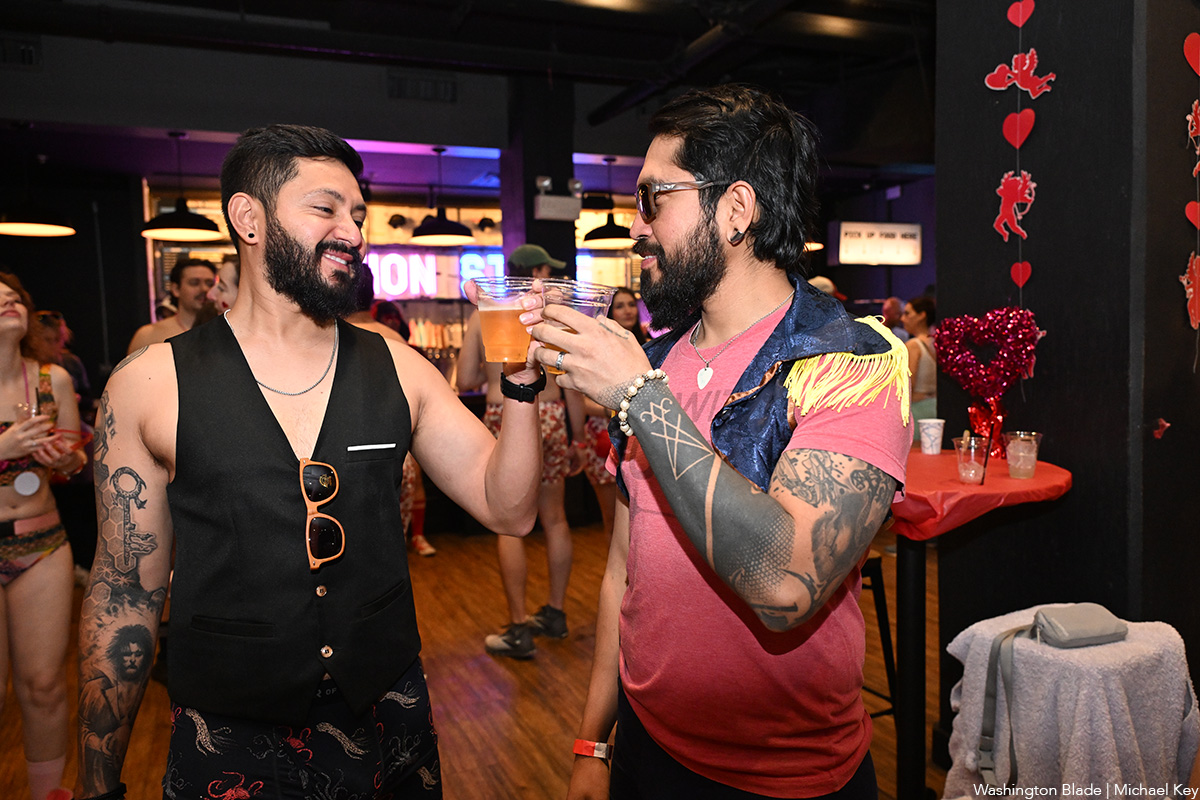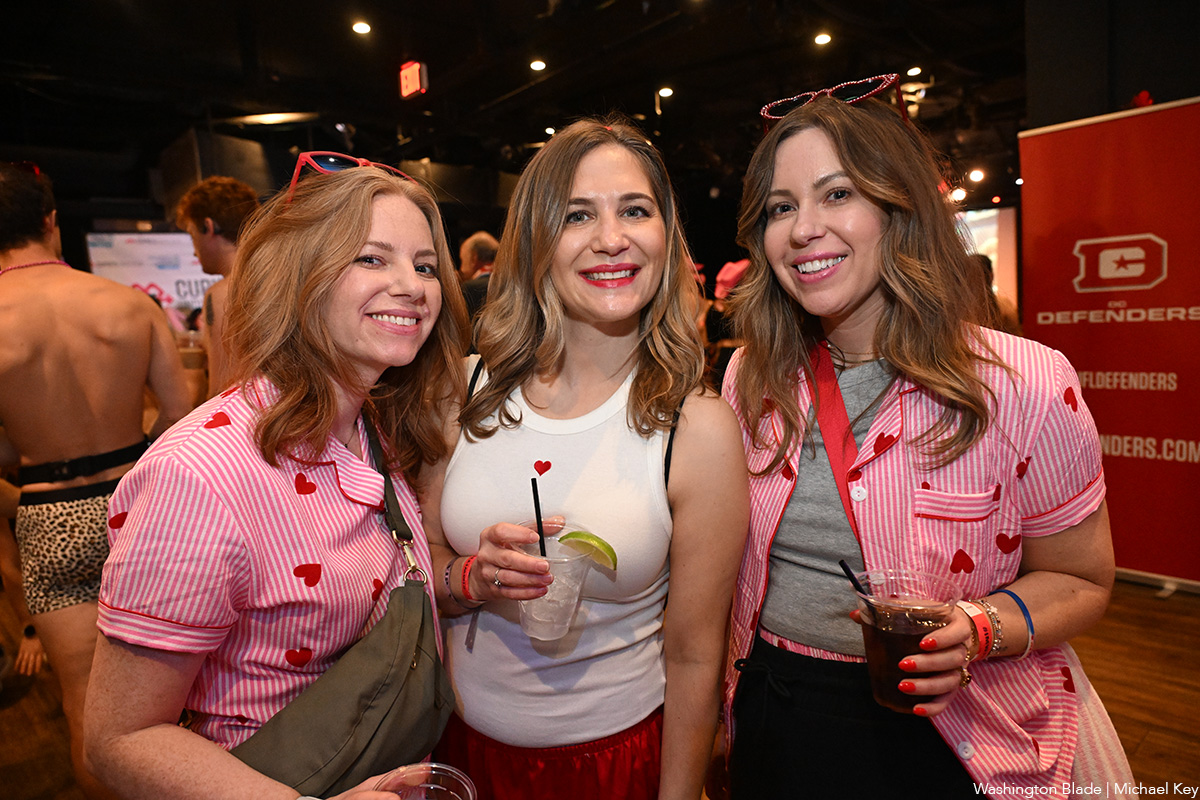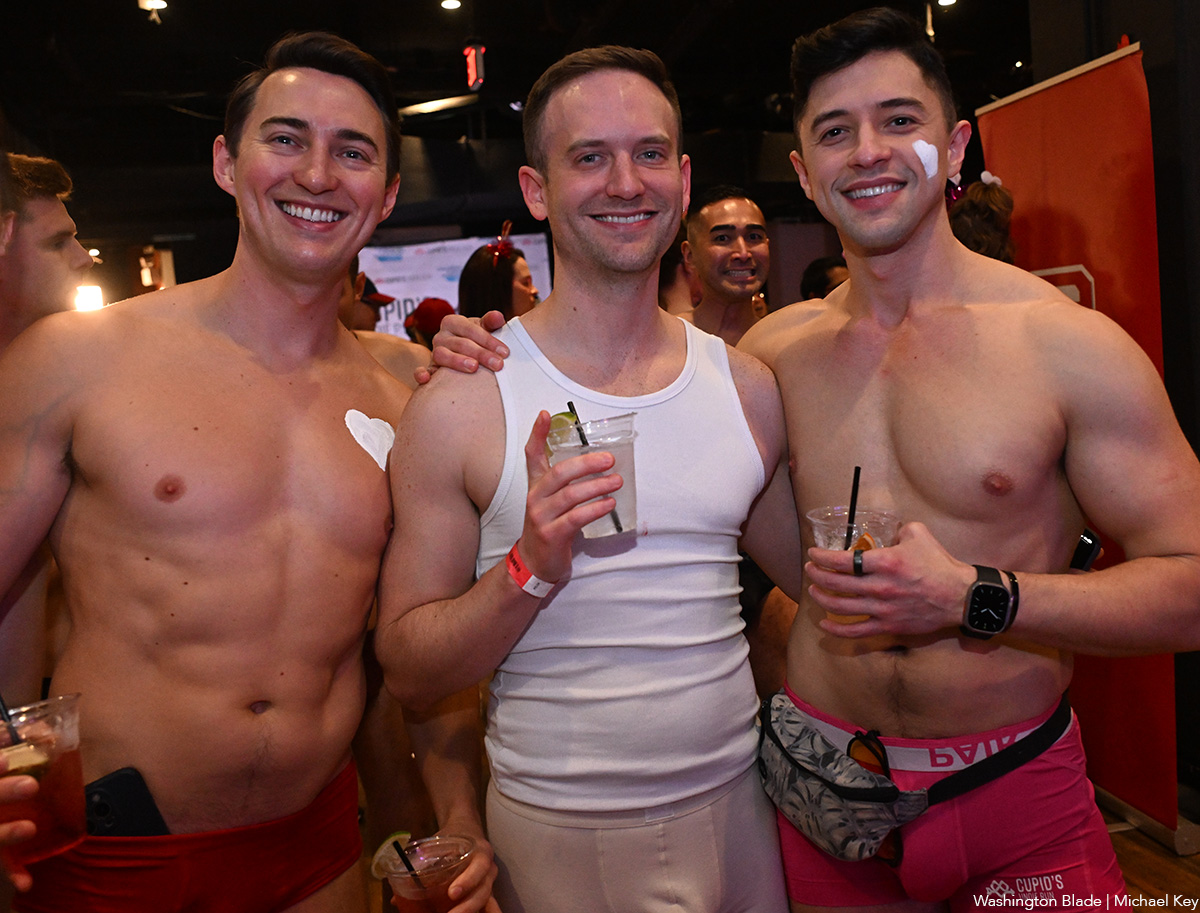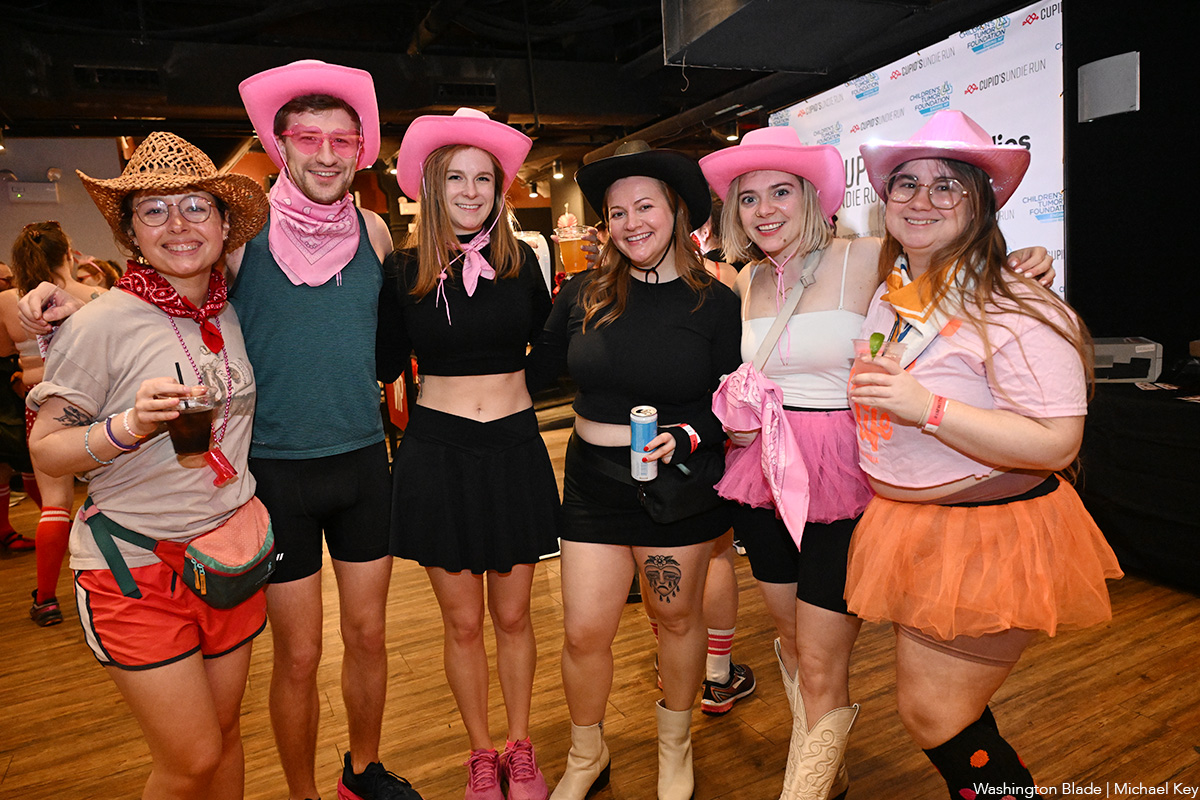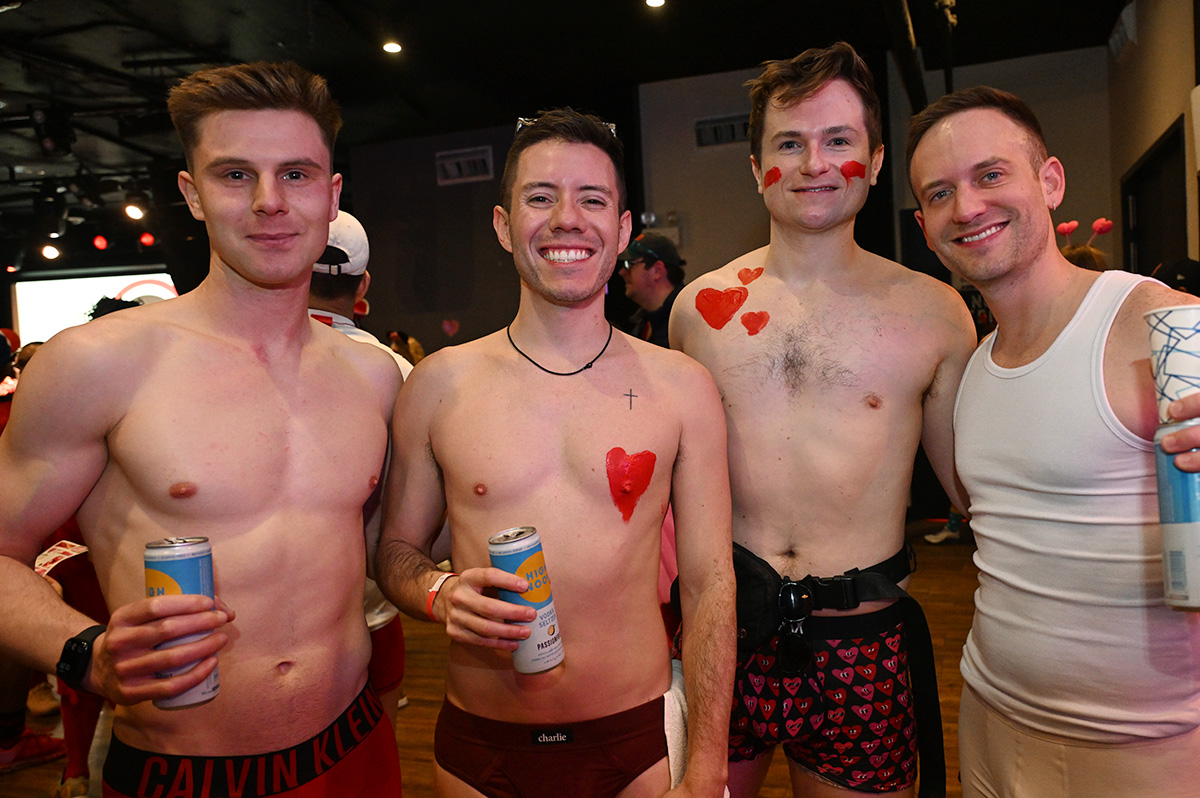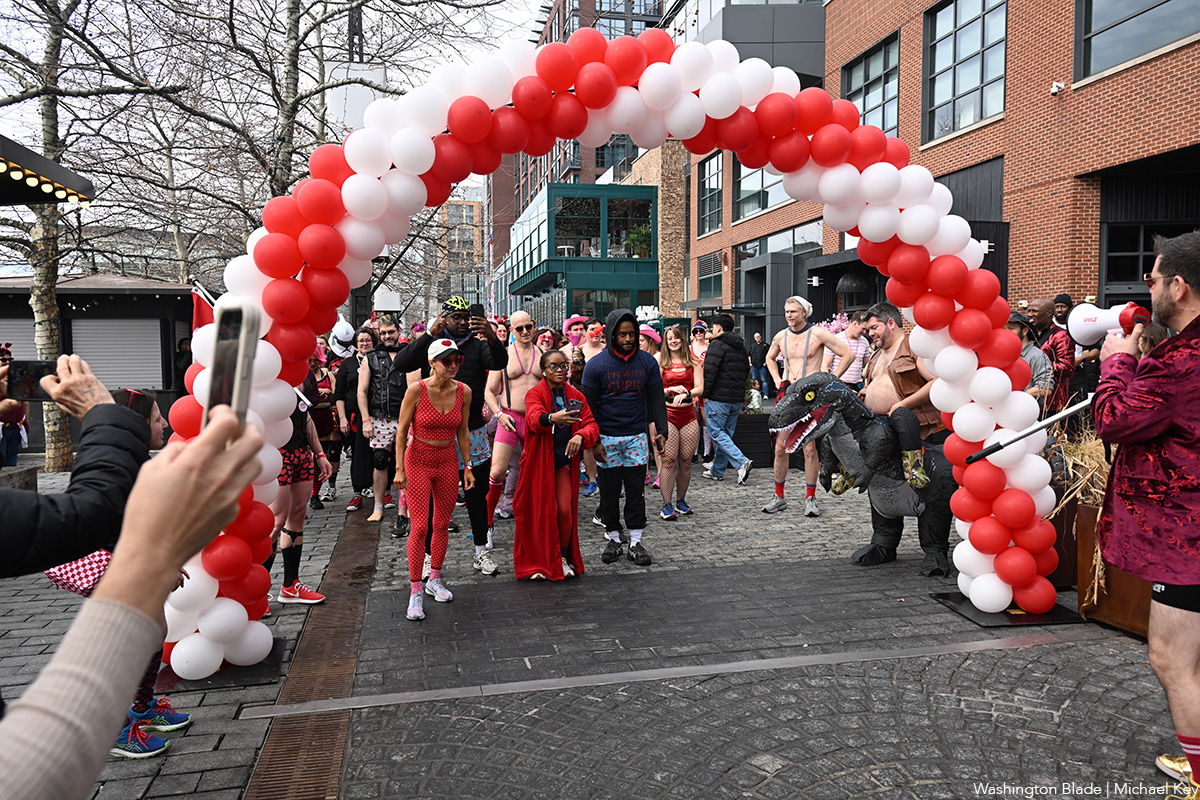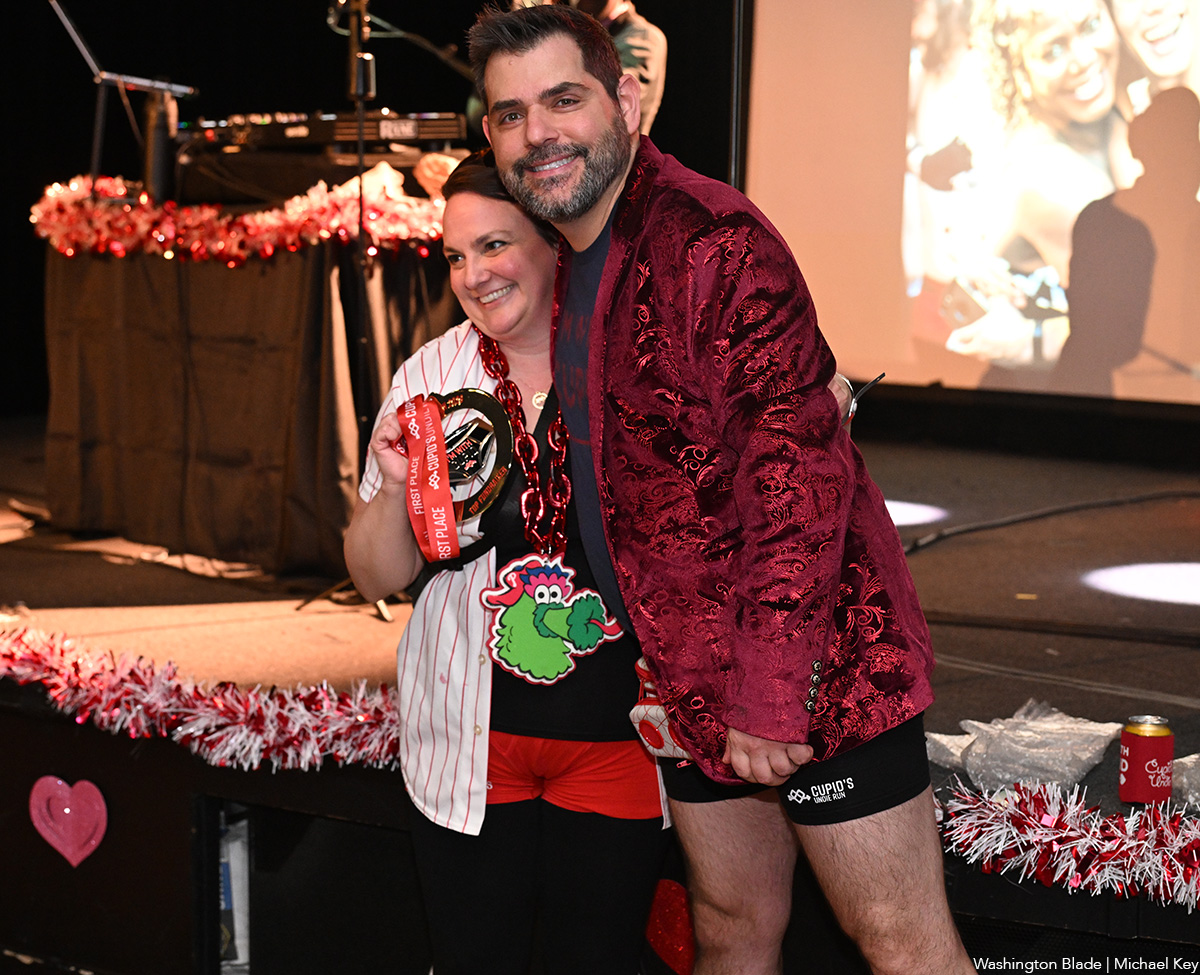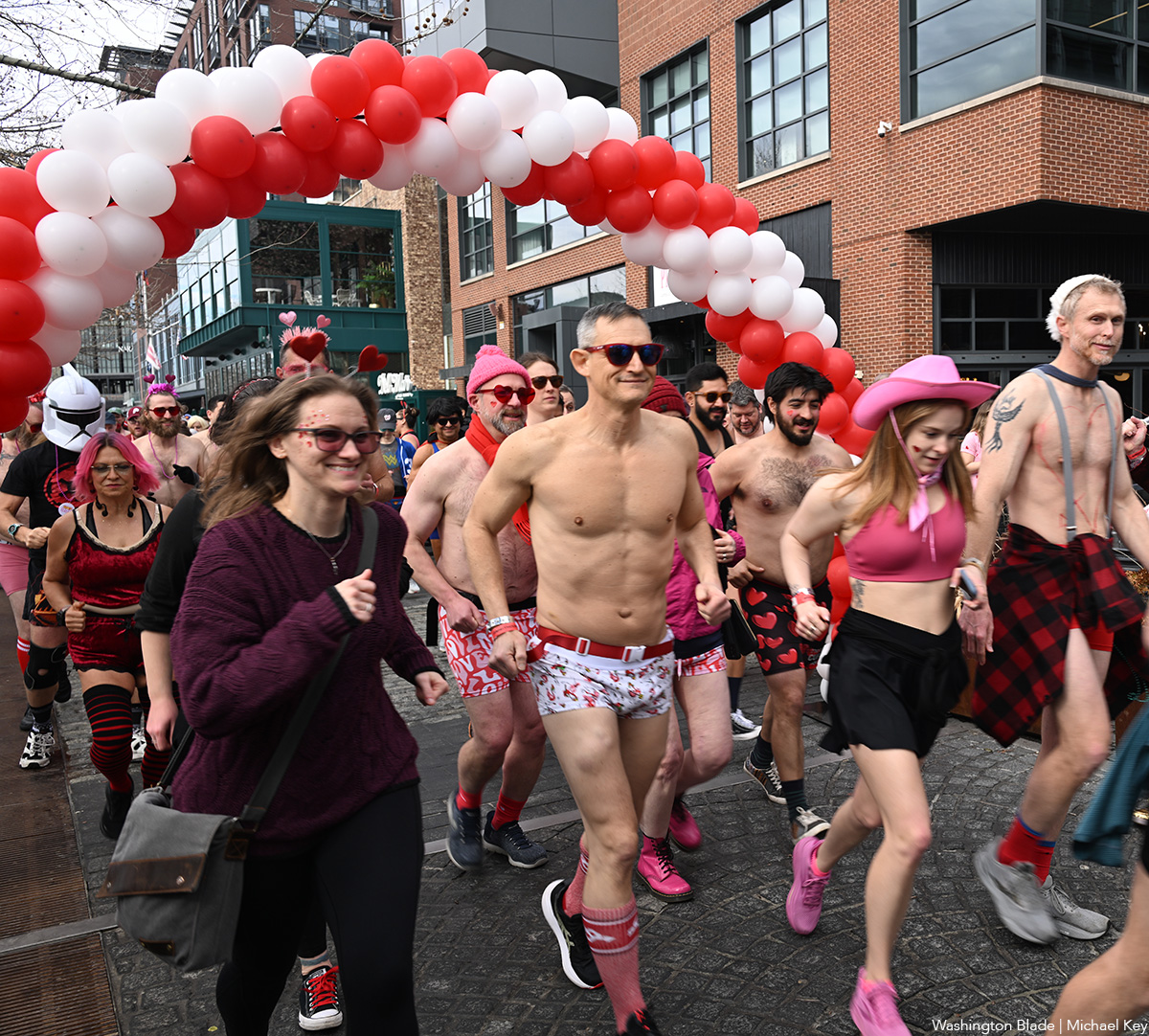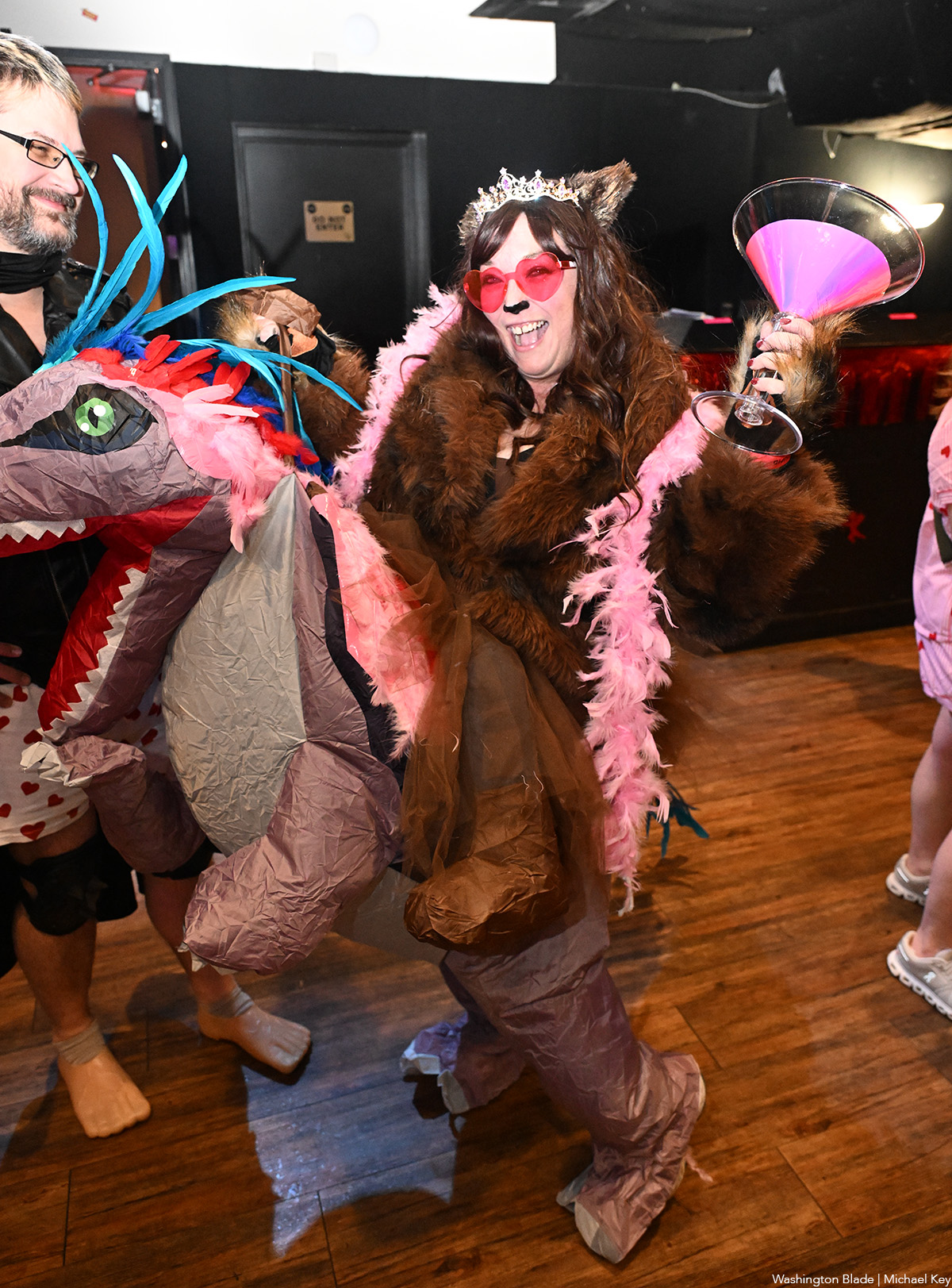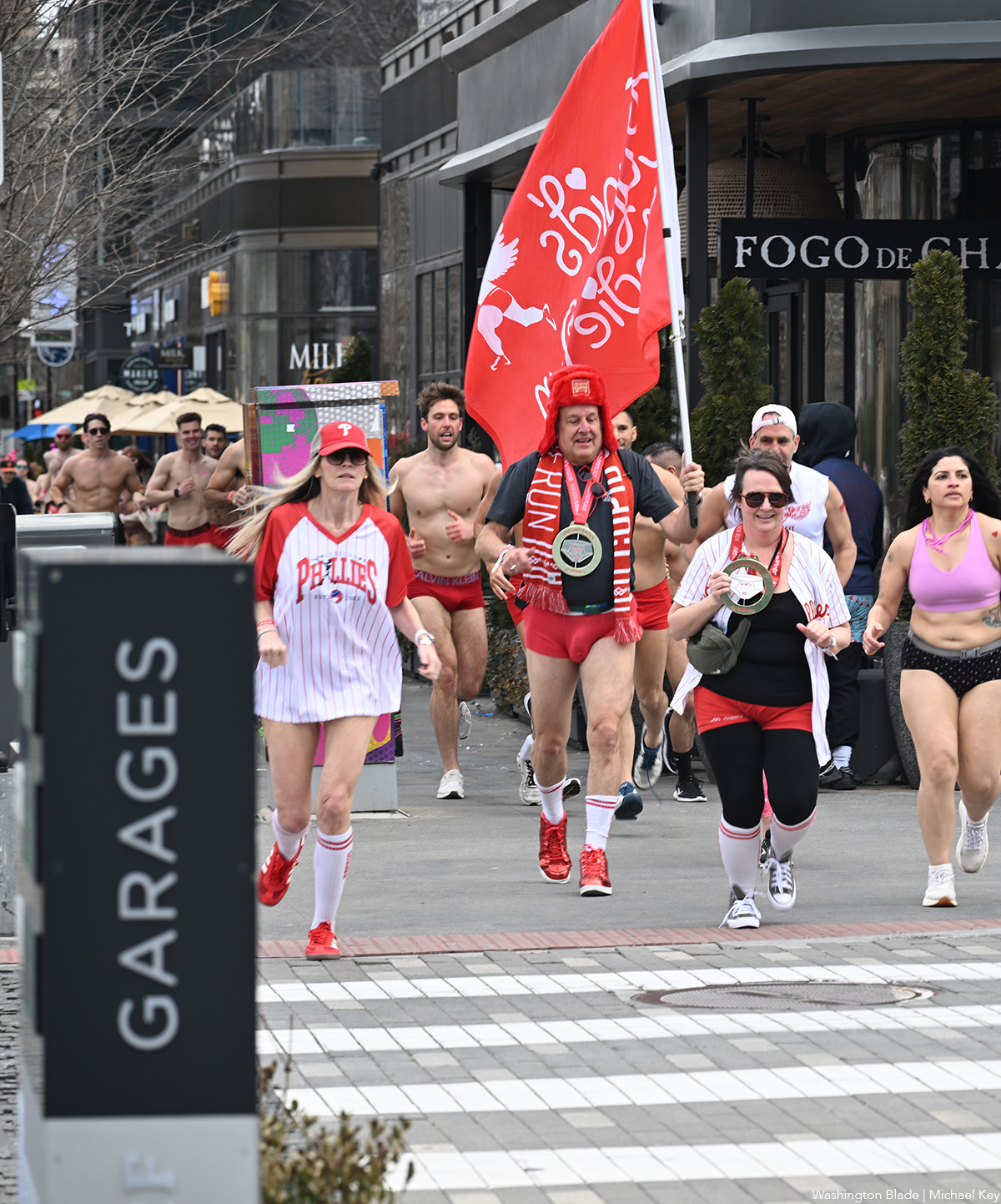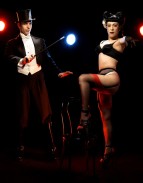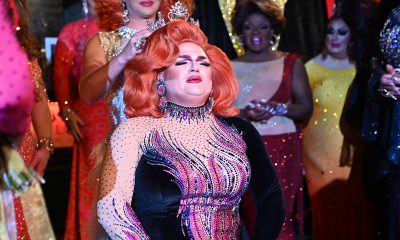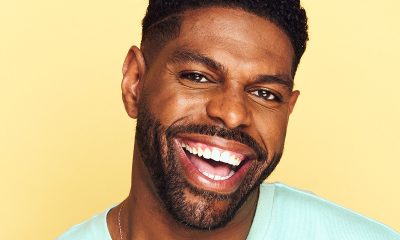Arts & Entertainment
Out & About: March 30
Events for both Washington and Baltimore
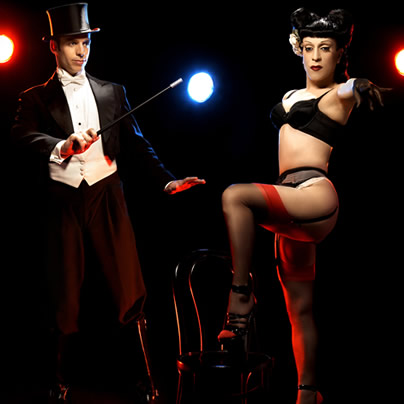
Woolly unveils ‘Arias With a Twist’
Drag singer Joey Arias and master puppeteer Basil Twist will be performing “Arias With a Twist” at Woolly Mammoth Theatre Company (641 D St., N.W.) starting Wednesday.
This is the D.C. premiere of the show, created in 2008, marking Arias’ return to New York after a six-year stint in a Cirque Du Soleil production in Las Vegas.
There will also be some special events through the show’s run. There will be four post-performance conversations on April 11, 15, 19 and 25. Woolly Mammoth will also be hosting a post-performance “Glamazon Pageant” on April 13 with local burlesque and vaudeville performers competing for a chance to be crowned as the ultimate “Glamazon.”
Tickets start at $30 and can be purchased online at woollymammoth.net. The show will run through May 6.
Rainbow Seder this weekend at HRC
GLOE Kurlander Program for GLBT Outreach and Engagement is having its fifth annual National Rainbow Seder on Sunday at the Human Rights Campaign (1640 Rhode Island Ave., N.W.) starting at 5 p.m.
This year, GLOE will be focusing on Heroes of Freedom, the leaders of freedom and equality movements throughout history.
There will be drinks and hors d’oeuvres and the Seder, led by Rabbi Toby Manewith, will start at 6 p.m.
Tickets are $36 for general admission, $24 for GLOE members, students, seniors and those with limited income, children 18 and under and volunteers can attend for free.
For more information and to purchase tickets, visit washingtondcjcc.org.
MTV chooses gay venue for ‘Real World’ casting call
MTV’s “The Real World” is holding an open casting call for the 28th season on Saturday at Town (2009 8th St., N.W.) from 10 a.m. to 5 p.m.
Casting directors from Bunim/Murray Productions will be looking for people with strong personalities who are not afraid to speak theirs minds. Past seasons have included an HIV/AIDS educator, an Iraq War vet, a recovering addict and many more.
They are particularly interested in cast members who have had to work hard to support themselves and move ahead in their lives.
Applicants are asked to bring a recent picture of themselves that will not be returned and a photo ID. Those interested must be 21 by March 1, 2013 and appear to be between the ages of 20 and 24.
For more information and to download the application form, visit bunim-murray.com/rwcasting.
BALTIMORE OUT & ABOUT
‘Bad Bunny Mansion Party’ at Grand Central
S.H.E. productions and Grand Central (1001 North Charles St.) present “The Easter Bunny Ball: A Bad Bunny Mansion Party” tonight at 9 p.m.
The evening will include free champagne cocktail and dessert bar from 9 to 10:30 p.m., a golden egg giveaway with special prizes, music by DJ Image and more.
Dress code is anything goes.
There is a $10 cover for this 21 and older event. For more information, visitsheproductionsevents.com or centralstationpub.com.
Film critics profiled in new documentary
The Maryland Institute College of Art (1301 W. Mt. Royal Ave.) has a few events of interest coming up this week.
On Monday, Kenyan artist Wangechi Mutu will be talking at the Brown Center at 10:30 a.m. about her work, which acts as commentary of a social and personal nature where the female body functions as a site of engagement and provocation. This event is free and open to the public.
Also Monday is a screening of “For the Love of Movies: The Story of American Film Criticism,” a documentary that shows the story of American movie reviewing at 7 p.m. in Falvey Hall. Directed by Gerald Peary, the movie includes commentary by Roger Ebert, Liza Schwarzbaum and more. The screening will include a introduction by Peary and a Q&A about film criticism.
On Thursday, the play “Fat Pig” opens at BBox (1601 Mt. Royal Ave.) at 8 p.m. The show is about a stereotypical young man who falls in love with a plus-sized librarian and explores how society treats their romance. Tickets are $15 for general admission and $10 for students and are available online at store.mica.edu and brownpapertickets.com, as well as at the door.
WAMMFest at Towson this weekend
WAMMFest (Women and Minorities in Media) is celebrating its fifth anniversary tonight and Saturday at Towson University.
WAMMFest strives to celebrate and encourage women and minorities in media production by calling for works, talks and screenings by everyone from students to professionals in categories such as animation, documentary, music and more.
This year’s guest artists are director and actor Jamil Walker Smith and producer Brittany Ballard. They will be screening their new film “An American Dream” on Saturday at 6 p.m. in Van Bokkelen where they will also talk about their experiences. Tickets to the screening are $5.
The two will also teach a master class “Script to Screen” at on Saturday 3 p.m. in the Media Center. Following the class will be a critique/feedback session.
WAMM winners will be presented this evening at 6 p.m. in Van Bokkelen.
For more information and to RSVP, visit wammtu.com.
Miss Gay Maryland tonight at the Hippo
Club Hippo (1 West Eager St.) has two big events going on this week.
Josie & the PussyCats present “Miss Gay Maryland Contestant Show” tonight at 11 p.m.
The show will featuring Eva Couture, Miss Gay Central Maryland 2012, Victoria Blair, first alternate Miss Hippo 2012, Anastacia Amor, Miss Gay FreeState 2012, Charity Suade’, Miss Hippo 2012, Cha’Nel Von Cartier Couture, first alternate Miss Gay FreeState and LuLu La Diva, first alternate Miss Gay Central Maryland.
Tickets are $7. For tickets and more information, call 443-926-2678.
Doors open at 10 p.m.
On Wednesday, the club has its weekly bingo game at 8:30 p.m. The game will also serve as an album release party for Madonna’s “MDNA.” Participants could win copies of the album and more. Proceeds from the game will benefit the GLBT Community Center of Baltimore and Central Maryland.
For more information, visit clubhippo.com.

More than a dozen LGBTQ athletes won medals at the Milan Cortina Winter Olympics that ended on Sunday.
Cayla Barnes, Hilary Knight, and Alex Carpenter are LGBTQ members of the U.S. women’s hockey team that won a gold medal after they defeated Canada in overtime. Knight the day before the Feb. 19 match proposed to her girlfriend, Brittany Bowe, an Olympic speed skater.
French ice dancer Guillaume Cizeron, who is gay, and his partner Laurence Fournier Beaudry won gold. American alpine skier Breezy Johnson, who is bisexual, won gold in the women’s downhill. Amber Glenn, who identifies as bisexual and pansexual, was part of the American figure skating team that won gold in the team event.
Swiss freestyle skier Mathilde Gremaud, who is in a relationship with Vali Höll, an Austrian mountain biker, won gold in women’s freeski slopestyle.
Bruce Mouat, who is the captain of the British curling team that won a silver medal, is gay. Six members of the Canadian women’s hockey team — Emily Clark, Erin Ambrose, Emerance Maschmeyer, Brianne Jenner, Laura Stacey, and Marie-Philip Poulin — that won silver are LGBTQ.
Swedish freestyle skier Sandra Naeslund, who is a lesbian, won a bronze medal in ski cross.
Belgian speed skater Tineke den Dulk, who is bisexual, was part of her country’s mixed 2000-meter relay that won bronze. Canadian ice dancer Paul Poirier, who is gay, and his partner, Piper Gilles, won bronze.
Laura Zimmermann, who is queer, is a member of the Swiss women’s hockey team that won bronze when they defeated Sweden.
Outsports.com notes all of the LGBTQ Olympians who competed at the games and who medaled.
Theater
José Zayas brings ‘The House of Bernarda Alba’ to GALA Hispanic Theatre
Gay Spanish playwright Federico García Lorca wrote masterpiece before 1936 execution

‘The House of Bernarda Alba’
Through March 1
GALA Hispanic Theatre
3333 14th St., N.W.
$27-$52
Galatheatre.org
In Federico García Lorca’s “The House of Bernarda Alba,” now at GALA Hispanic Theatre in Columbia Heights, an impossibly oppressive domestic situation serves, in short, as an allegory for the repressive, patriarchal, and fascist atmosphere of 1930s Spain
The gay playwright completed his final and arguably best work in 1936, just months before he was executed by a right-wing firing squad. “Bernarda Alba” is set in the same year, sometime during a hot summer in rural Andalusia, the heart of “España profunda” (the deep Spain), where traditions are deeply rooted and mores seldom challenged.
At Bernarda’s house, the atmosphere, already stifling, is about to get worse.
On the day of her second husband’s funeral, Bernarda Alba (superbly played by Luz Nicolás), a sixtyish woman accustomed to calling the shots, gathers her five unmarried daughters (ages ranging from 20 to 39) and matter-of-factly explain what’s to happen next.
She says, “Through the eight years of mourning not a breeze shall enter this house. Consider the doors and windows as sealed with bricks. That’s how it was in my father’s house and my grandfather’s. Meanwhile, you can embroider your trousseaux.”
It’s not an altogether sunny plan. While Angustias (María del Mar Rodríguez), Bernarda’s daughter from her first marriage and heiress to a fortune, is betrothed to a much younger catch, Pepe el Romano, who never appears on stage, the remaining four stand little chance of finding suitable matches. Not only are they dowry-less, but no men, eligible or otherwise, are admitted into their mother’s house.
Lorca is a literary hero known for his mastery of both lyrical poetry and visceral drama; still, “Bernarda Alba’s” plotline might suit a telenovela. Despotic mother heads a house of adult daughters. Said daughters are churning with passions and jealousies. When sneaky Martirio (Giselle Gonzáles) steals the photo of Angustias’s fiancé all heck kicks off. Lots of infighting and high drama ensue. There’s even a batty grandmother (Alicia Kaplan) in the wings for bleak comic relief.
At GALA, the modern classic is lovingly staged by José Zayas. The New York-based out director has assembled a committed cast and creative team who’ve manifested an extraordinarily timely 90-minute production performed in Spanish with English subtitles easily ready seen on multiple screens.
In Lorca’s stage directions, he describes the set as an inner room in Bernarda’s house; it’s bright white with thick walls. At GALA, scenic designer Grisele Gonzáles continues the one-color theme with bright red walls and floor and closed doors. There are no props.
In the airless room, women sit on straight back chairs sewing. They think of men, still. Two are fixated on their oldest siter’s hunky betrothed. Only Magdelena (Anna Malavé), the one sister who truly mourns their dead father, has given up on marriage entirely.
The severity of the place is alleviated by men’s distant voices, Koki Lortkipanidze’s original music, movement (stir crazy sisters scratching walls), and even a precisely executed beatdown choreographed by Lorraine Ressegger-Slone.
In a short yet telling scene, Bernarda’s youngest daughter Adela (María Coral) proves she will serve as the rebellion to Bernarda’s dictatorship. Reluctant to mourn, Adela admires her reflection. She has traded her black togs for a seafoam green party dress. It’s a dreamily lit moment (compliments of lighting designer Hailey Laroe.)
But there’s no mistaking who’s in charge. Dressed in unflattering widow weeds, her face locked in a disapproving sneer, Bernarda rules with an iron fist; and despite ramrod posture, she uses a cane (though mostly as a weapon during one of her frequent rages.)
Bernarda’s countenance softens only when sharing a bit of gossip with Poncia, her longtime servant convincingly played by Evelyn Rosario Vega.
Nicolás has appeared in “Bernarda Alba” before, first as daughter Martirio in Madrid, and recently as the mother in an English language production at Carnegie Melon University in Pittsburgh. And now in D.C. where her Bernarda is dictatorial, prone to violence, and scarily pro-patriarchy.
Words and phrases echo throughout Lorca’s play, all likely to signal a tightening oppression: “mourning,” “my house,” “honor,” and finally “silence.”
As a queer artist sympathetic to left wing causes, Lorca knew of what he wrote. He understood the provinces, the dangers of tyranny, and the dimming of democracy. Early in Spain’s Civil War, Lorca was dragged to the the woods and murdered by Franco’s thugs. Presumably buried in a mass grave, his remains have never been found.
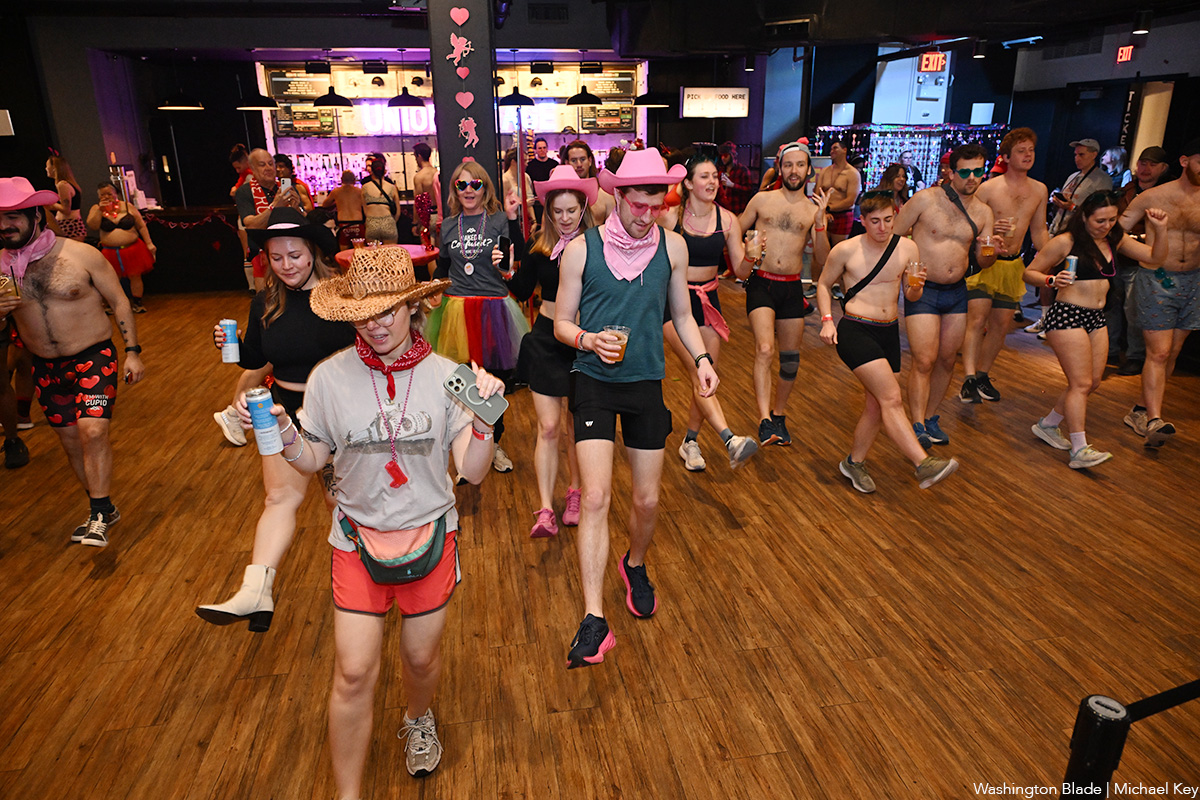
Cupid’s Undie Run, an annual fundraiser for neurofibromatosis (NF) research, was held at Union Stage and at The Wharf DC on Saturday, Feb. 21.
(Washington Blade photos by Michael Key)
